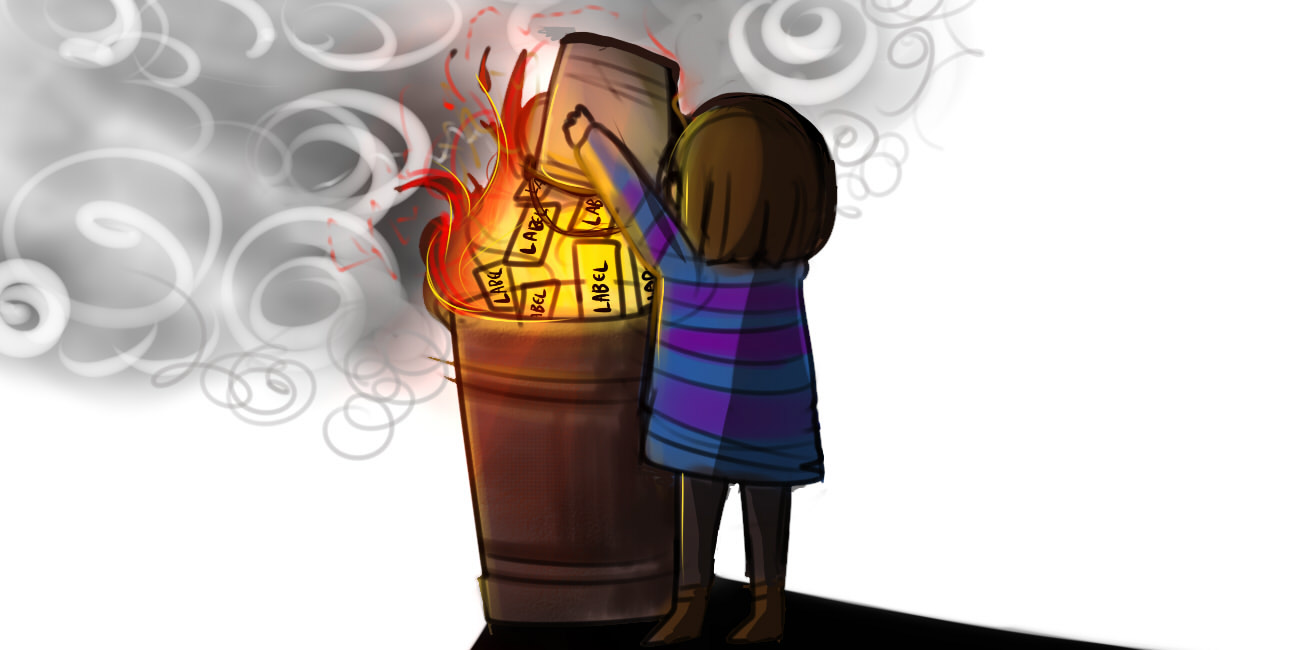We can fit it in the gay and straight communities.
With the pronoun “we,” the speaker outed herself, indicating her bisexuality. First identified by queer and feminist linguists, the linguistics of coming out looks at the way people use language to talk about sexuality.One doesn’t have to march half-naked in the local Pride parade to come out. In fact, coming out is usually much more subtle.
People send cues and clues as to their sexuality and gradually, the pieces start clicking for their friends and family. Some are unaware of the signs they’re sending and are really surprised when a friend finally pops the question.
Others will be more blunt and hint transparently. For instance, hearing your classmate gush about wanting to “Channing” Channing Tatum’s “tatum” and responding with an enthusiastic “me too.!”
Usually moments like that give straight people a double take. Although many have learned to smooth over it, you can expect follow-up questions. That’s not to say allies and heteros are clueless. Usually, their only crime is not being part of a queer linguistic community. In other words, they’re unaware of the terminology in use. Hell, not every LGBT knows the latest and greatest slang, and language changes all the time.
Language is a powerful and flexible tool that lends itself well to situations like coming out. The only problem is that it’s completely arbitrary as fuck. Remember the good ol’ days when gay meant happy? Back then, you weren’t gay, you were homosexual. Today, “homosexual” sounds excessively clinical.
Moreover, the queer community has been portrayed on occasion as internally divided, unable even to decided on an appropriate moniker. Some have gone as far as LGBTTQQIAAP andLBTTQQFAGPBDSMand have been mocked. Acronyms can grow, fester, and prosper until the entire page is occupied in an attempt to include everyone.
An utterly vain attempt, as any acronym for communities comprising millions of people will bloat endlessly in order to represent each individual snowflake. Not to mention it’s hardly possible to express the depth and breadth of a human being’s identity in one word or symbol. I imagine each letter in LGBT can be expanded into an alphabet soup of its own.
Nevertheless, any mooted internal fractures are merely manifestations of language as a whole, just like we can’t agree on the meaning of words such as “liberal,” “progressive,” and “conservative.” Individuality is lost in the scramble to police categories. Indeed the criticism that even the most voluminous acronym excludes someone somewhere is valid, despite scoffs that it’s unwieldy and ridiculous.
As tacky as it sounds, the only definition that matters is the one you decide on for yourself. Fit in one of the broad LGBT? Good. Need a few more letters to get off? Whatever. Choose your own adventure.
The real breakthrough will come the day we acknowledge the precedence of our humanity in constructing our identities. Everything else is secondary. Until then, you can use any arbitrary letter or combination of symbols to refer to yourself.
My only concern is that we’ll run out of letters and symbols like we did with IP addresses.
Alex Kvaskov
Assistant News Editor




